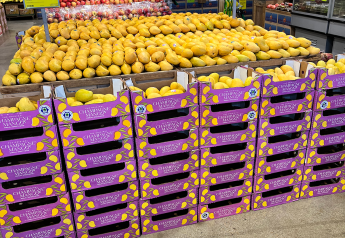Why the middleman still matters

Farm to table is the ethos of the last decade’s food culture, or in our industry’s case, it’s often farm to store shelf.
Big box retailers are sourcing directly from farms. Some growers are reaching out directly to consumers.
Where does this leave all the professionals who do the middleman magic — the work that’s not seen in the mainstream foodie consciousness?
During a recent visit with several business leaders at Hunts Point Produce Market in the Bronx, N.Y., I learned a bit more of what’s on the minds of wholesalers, brokers, distributors, shippers and logistics experts housed there.
Their sentiments echoed what I’ve heard on my visits in the past eight months to the New England Produce Center, Boston Market Terminal, Philadelphia Wholesale Produce Market and Montreal’s Place des Producteurs du Marché Central.
Bypassing the middleman can mean the grower gets to keep more of the profit and better control the quality of the product from start to finish. That business model requires companies on both ends to integrate more vertically to handle other aspects of this business within the company.
But there were good reasons people needed these in-between professionals in the first place.
Many growers, as well as grocers and restaurants, have told me they need to focus on their main tasks at hand. Standing in the soil surrounded by their crops, I’ve had growers in New York, New Jersey and Quebec tell me they don’t have the time, money, expertise or desire to worry about the rest.
Have you ever wondered how a restaurant that has an exhaustive, book-length menu can do each dish well? I tend to trust more in the high quality and attention paid to a dish on a smaller menu. Same concept.
To complicate matters, there’s always a second truism to contradict the first one.
First, master one thing well, rather than spread yourself too thin trying to be all things to all people in a mediocre manner.
On the other hand, diversification can help a business survive in this changing industry.
Even so, Hunts Point Produce Market still plays a vital role in feeding many Americans.
In a 50-mile radius, the market’s 35 merchants feed 9% of the U.S. population, generating about $2.3 billion in sales a year, providing food to 23,000 restaurants, 2,500 greengrocers and filling orders for big retailers, according to the market website.
Helping the shippers move their produce is no small feat.
It requires a depth and breadth of knowledge in logistics, food safety, food quality, problem-solving skills and ability to act quickly and efficiently with one of the most perishable products out there. When their customers on the buy side or the sell side are in a jam with too much or too little product, these terminal market professionals are there to fill in the gaps or sell off the extras.
— Amy Sowder is The Packer’s Northeast editor. E-mail her at asowder@thepacker.com.







